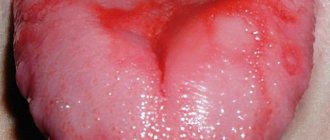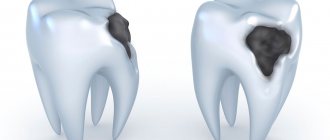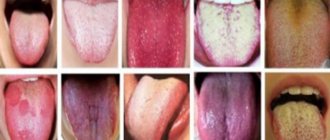29.01.2020 23540 0
- When to introduce the first complementary foods
- How to tell if your baby is ready for solid food
- Diet for young children
- Common mistakes in complementary feeding
- Prohibited products
- What to do if your child cannot eat solids
- Gameplay for eating
When a small child appears in a family, parents are faced with a difficult task: not only to raise and educate, but also to instill in the child all the necessary skills. For example, young parents are often concerned about how to teach their child to chew. We have collected advice for you from famous Russian and foreign pediatricians that will help you find the optimal solution.
What are the difficulties?
For adults, the process of chewing food seems completely natural. But the child only has a sucking reflex, and even liquid puree becomes unusual and unfamiliar food for him. In addition, the same period is characterized by other reflex reactions, due to which solid pieces of food that enter the mouth are rejected. They weaken by 4 months, but there is no need to wean the baby from the breast at this age: mother’s milk “adjusts” to the baby’s needs, its composition changes over time.
Associated symptoms
Many symptoms of various diseases can accompany tongue chewing. As mentioned above, these are endocrine disorders, infectious diseases, often teething or pathologies of the bite and development of the jaw bones.
In addition to all of the above, this habit can be accompanied by many inflammatory diseases of the oral cavity:
- glossitis - inflammation of the tongue,
- stomatitis - inflammation of the mucous membrane,
- gingivitis – inflammation of the gums.
These pathologies always cause discomfort in babies in the form of itching and pain, so they begin to drown it out by chewing their tongue. A vicious circle is created here - the child bites the tongue, thereby injuring it, which further aggravates the inflammatory process. That is why chewing the tongue itself contributes to the development of diseases.
How to tell if your baby is ready for solid food
As a rule, the baby himself makes it clear that he is interested in updating his diet. This can be seen from his behavior:
- Stops sucking food from a spoon, removing it with his lips
- Tries to chew
- Shows interest in “adult” food
- Puts hard objects into mouth
- Opens mouth wide when feeding
Usually this happens no earlier than 6-8 months - this is when you can start giving your child cereals and other foods with small dense particles.
Hypothyroidism
The cause of this disease is problems associated with the thyroid gland. Children whose mothers received insufficient iodine during their waiting period are especially likely to get sick. Tests to detect the disease are taken from newborns while still in the maternity hospital. The site for blood collection is the baby's heel. If after the examination, mommy was not invited to receive medical recommendations, then there is no need to worry. This means that the child is not sticking out his tongue because of hypothyroidism.
The disease is accompanied by the following symptoms:
- the skin becomes marbled or yellow in color;
- the baby is constantly with his tongue hanging out;
- the skin loses moisture and becomes drier;
- the baby has a developmental delay;
- swelling of the tongue, in which it swells and does not fit in the baby’s mouth;
- the outlines of the face become denser;
- cyanosis of the nasolabial triangle appears;
- it is difficult to gain weight;
- The baby suffers from constipation.
Treatment of the disease begins only after a thorough examination, which includes an analysis of the content of thyroid-stimulating hormone in the baby’s blood and an ultrasound of the thyroid gland. Only after this the doctor prescribes drug treatment with drugs containing thyroid hormones.
Common mistakes
Young parents may involuntarily make mistakes. This is normal and should not cause panic: the first child is always difficult. If your baby refuses solid food, there are several reasons.
Particle size too large
. A child’s protective reflex is triggered, causing him to often spit out food. And if the piece is very large, the baby may start vomiting.
Complementary foods were introduced very late
. Some “specialists” and “experienced relatives” convince young mothers that they need to feed their baby breast milk for up to a year, without giving him other food. The baby gets used to this diet, and his chewing reflex does not develop. There is no need to be afraid, it is difficult, but it can be fixed.
The child does not like the taste
. Yes, he is already an independent person who has formed his own preferences. So the baby can easily eat broccoli and refuse the baked pear. Or vice versa. You should not force your child to eat something he doesn’t like or force him to finish the entire portion.
Negative associations
. Some psychologists believe that refusal to eat from a spoon may be caused by the fact that the child associates food with medicine (manifests itself in cases where the baby was given tasteless medicines).
Too many new products
. Don't try to include a lot of different foods in your diet. As Ellyn Satter writes in Feeding and Nourishing Your Baby with Love and Common Sense, it's best to add "scary and unfamiliar" foods to what your baby already loves, and in very small portions.
The child is fed like an adult
. Larisa Surkova writes in the book “How great it is with a child from 1 to 3 years old: a generator of useful tips”, you should not deny your baby tactile sensations. If he wants to crush food, sniff it, smear it on the table, let him do it. In the end, the table can be covered with oilcloth (and the floor, by the way, too).
Underwater rocks
Up to six months, children have an active expulsion reflex - a natural defense against suffocation. Therefore, at the beginning of “communication” with semi-solid food, the child may choke and spit out the food. There is no need to be scared and abruptly return to purees and ground products! Chewing is a skill and needs to be learned.
If you've introduced semi-solid foods a long time ago and your baby is still choking, give him time. Place food in front of your baby and watch - let him try to put food in his mouth with his hand on his own. Children should be praised and not scolded at the table! Otherwise, food may begin to be associated with violence and lead to an eating disorder.
Links:
- The American Journal of Clinical Nutrition, Volume 94, Issue 3, September 2011, Pages 709–716, https://doi.org/10.3945/ajcn.111.015164
- The American Journal of Clinical Nutrition. Mastication of almonds: effects of lipid bioaccessibility, appetite, andhormone response. Bridget A Cassady. https://ucce.ucdavis.edu/files/datastore/608-11.pdf
- Cell. Nicolas Dutzan. Published: January 10, 2022 DOI: https://doi.org/10.1016/j.immuni.2016.12.010
- Effectiveness of Chewing Technique on the Phonation of Female Speech-Language Pathology Students: A Pilot Study. Meerschman I DOI:10.1016/j.jvoice.2015.06.016
What to do if your child cannot eat solids
In some cases, even a one-year-old baby cannot chew food and constantly choke on small pieces. This means that the chewing reflex has not fully formed, and parents will have to act very delicately:
- Prepare thick cream soups and purees for your child, but leave a few tiny boiled pieces of vegetables when blending
- Later, the vegetables can be chopped with a fork; the pieces will become larger, but not hard enough for a child to choke on.
- The best effect will be achieved by products whose taste the child likes. These can be baked apples and pears, bananas, children's cookies
- Food needs to be made not only tasty, but also beautiful so that it attracts the baby
If, during the learning process, the child continues to choke and is unable to swallow solid food, this is a reason to consult a doctor who will find the cause of the problem.
Game process
The child needs to be interested. A game story for eating is the absolute norm. During the process, you can tell your baby an interesting story in which he will be involved. The well-known “airplane” flying to the “hangar” is a real way to feed a child without nerves and hysterics. However, it is important to understand that if the baby begins to turn away, it means that he has already eaten. There is no need to feed him with the rest of the puree, even if it is only a spoon. Teaching a baby to eat “adult” solid food is a really difficult task that requires attention and patience from parents. Remember that you are helping your child develop one of the most important skills! On this path you need to become an ally to the baby. Force feeding will cause rejection. It is simply impossible to teach by feeding tasteless purees or forcing the child to finish eating porridge when the child is already full.
(2 ratings; article rating 5.0)
Share Share Share
Causes of tongue protrusion
Most babies can use their tongues to indicate the presence of some discomfort or simply try to communicate with their interlocutor in this way. Typically, a protruding tongue in a newborn may indicate the following:
- Teeth are being cut. When the baby's first teeth appear, the gums begin to swell greatly, which is accompanied by pain. To dull the pain, the child reflexively begins to move his tongue;
- Want to eat. If the newborn is hungry, he can stick out his tongue and suck on it, which will be a signal to the mother to feed him;
- The tongue is tight. Some babies have a tongue that is slightly larger than the standard size and does not fit well in the mouth. That's why he often ends up sticking out. In this case, there is no need to sound the alarm, because... over time (when the child grows up a little) everything will return to normal;
- The kid is exercising. For some reason, when a newborn waves his little legs or arms, this is considered normal, but when a child begins to stick out his tongue, his parents immediately become wary. The tongue is a muscle that performs important functions in the human body, therefore, like any other organ, it needs development and training;
- Pampering. An infant's tongue sticking out may be a copy of a similar movement by its parents. The child may also stick out his tongue when trying to produce a new sound. These actions occur quite rarely, so there is no reason to worry;
- The baby is hot. If a child becomes hot, then by sticking out his tongue he increases the surface on which moisture evaporates, which leads to cooling of the body. It may also indicate that the newborn is thirsty;
- Stomatitis. This disease affects the oral mucosa. As stomatitis develops, very painful ulcers begin to form in the baby’s mouth. Sometimes such ulcers appear under the tongue, which the baby sticks out to reduce pain;
- Hypothyroidism. This disease is characterized by decreased thyroid function. Hypothyroidism is a very dangerous disease that can lead a child to serious developmental delays. You should know that early diagnosis of this disease contributes to the development of fewer consequences for the baby. With hypothyroidism, the baby's tongue falls out of the mouth, simply not fitting into it. Also, this disease may be accompanied by jaundice or severe weight gain in the child, therefore, at the first suspicion of hypothyroidism, you must immediately contact an endocrinologist, after which you must pass all the necessary tests;
- Thrush. This is a fungal disease that affects the baby's mouth. The development of thrush in a child can be indicated by the formation of a white coating on the baby’s tongue, his cheeks and palate, which causes serious discomfort to the baby, forcing him to stick out his tongue;
- Increased intracranial pressure. In addition to frequent tongue protruding, a symptom of this phenomenon may be the child throwing his head back during sleep. To confirm (or refute) the diagnosis, it will be necessary to undergo an ultrasound examination, as well as an examination by a neurologist. Treatment, as a rule, includes the use of medications, physical exercise, and various massages;










